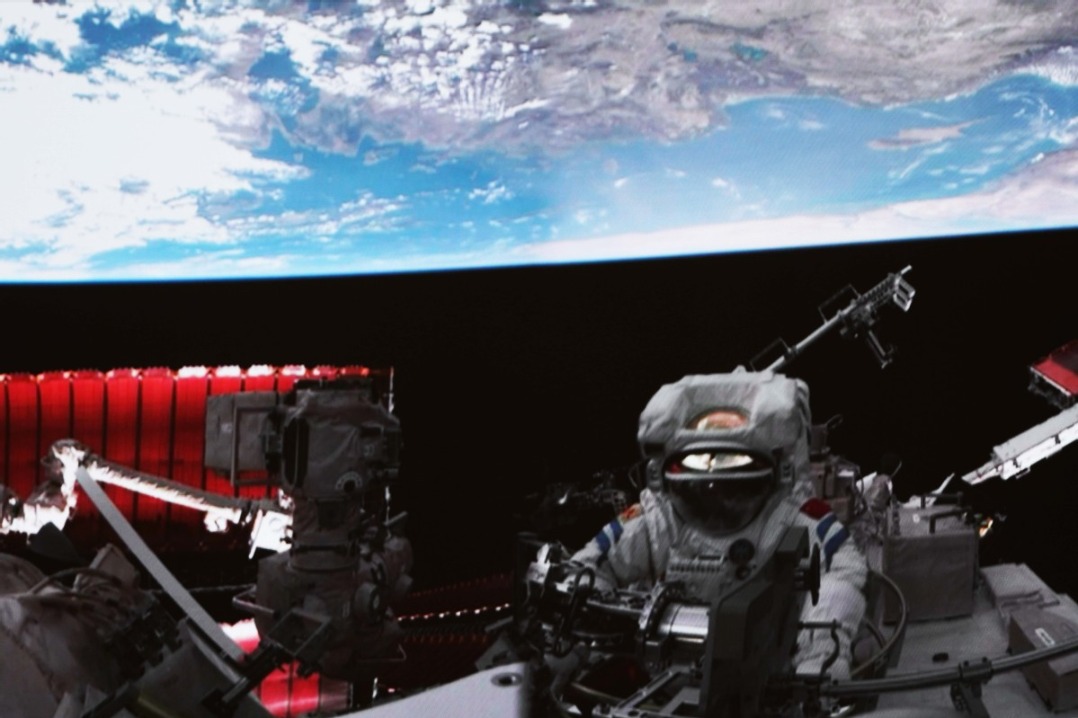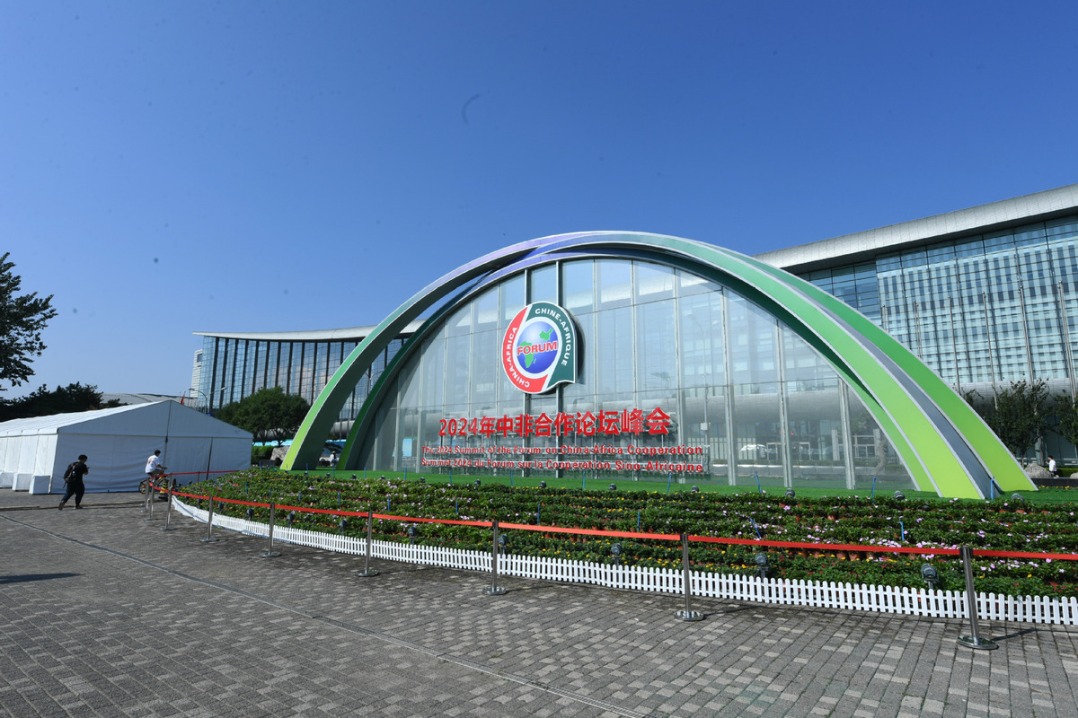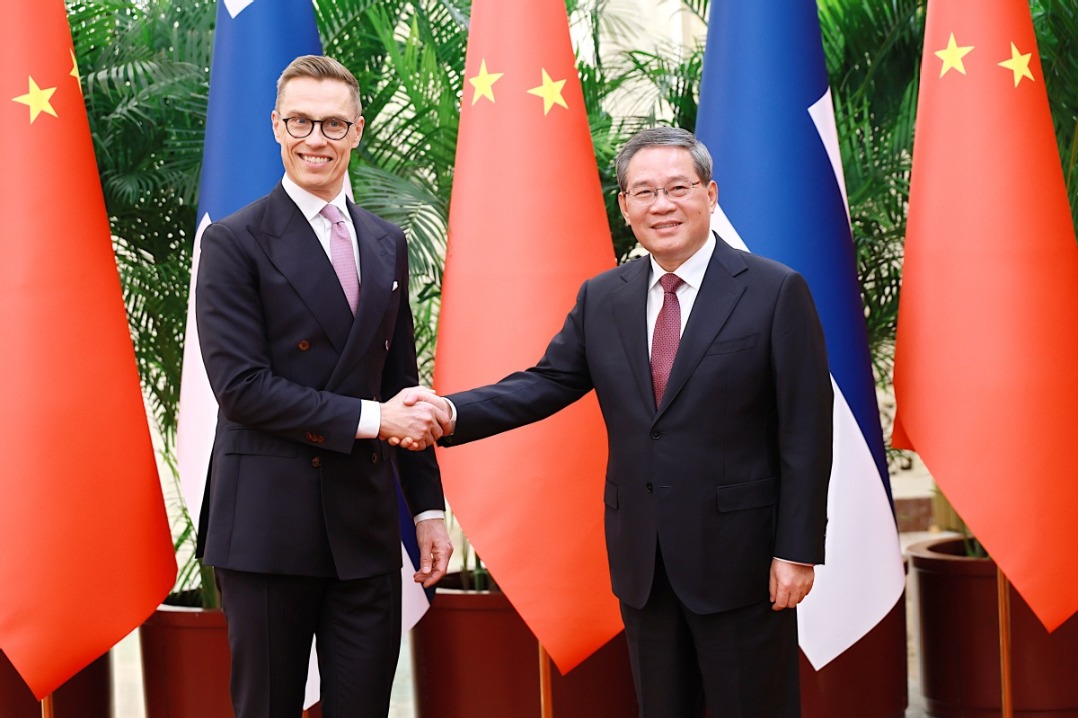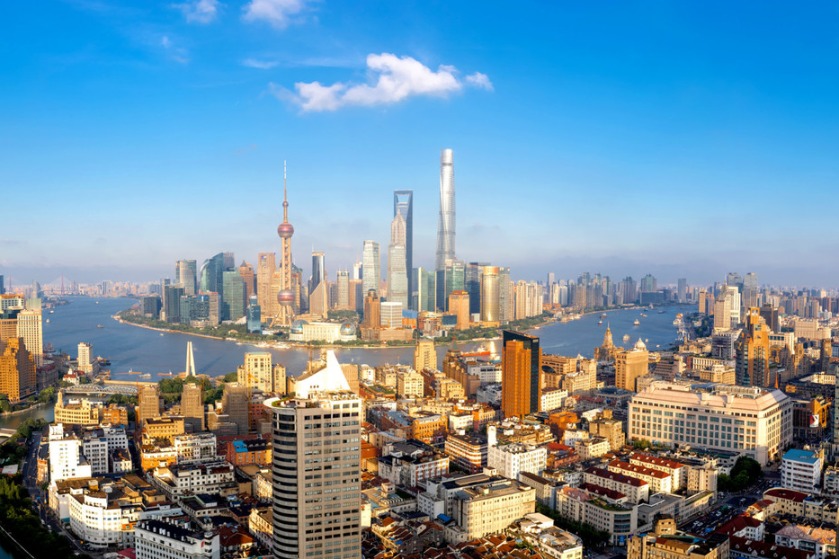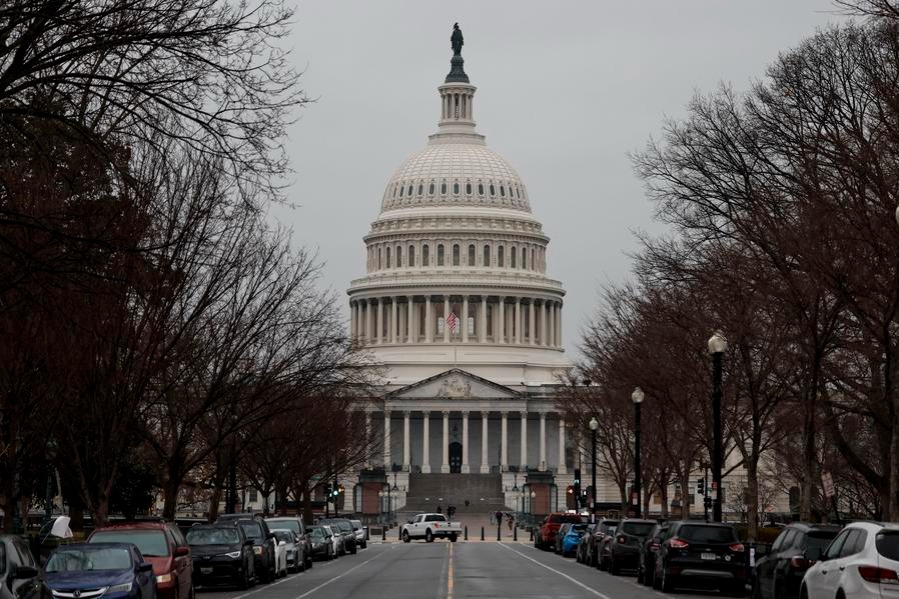Building shared successes


Collaboration over confrontation will lead our interconnected economies toward cycles of mutual growth and understanding
Editor's note: The world has undergone many changes and shocks in recent years. Enhanced dialogue between scholars from China and overseas is needed to build mutual understanding on many problems the world faces. For this purpose, the China Watch Institute of China Daily and the National Institute for Global Strategy, Chinese Academy of Social Sciences, jointly present this special column: The Global Strategic Dialogue, in which experts from China and abroad will offer insightful views, analysis and fresh perspectives on long-term strategic issues of global importance.
In recent years, we have witnessed a complex ballet of economic interdependence and strategic rivalry that has shaped interactions between major economies. These relationships are not merely bilateral but form a triangular dynamic where each action and policy reverberates across the global economic landscape. This interplay is crucial, affecting not only the parties involved but also setting the tone for global economic policies and practices.
Today, we find ourselves at a critical juncture. The European Union, China and the United States form a trio of economic powerhouses that underpins significant aspects of global trade, investment, and technological advancement. Over the past decades, our intertwined economies have crafted a web of interdependence that is both a strength and a source of tension. The economic interdependence between these regions is profound, with supply chains crisscrossing continents, integrating industries and markets. Yet, recent years have seen this relationship characterized by strategic competition, especially in areas of technological innovation and national security.
The EU and China, for example, have seen fluctuations in their economic interactions, with significant political and trade negotiations impacting their bilateral relations. The Comprehensive Agreement on Investment between these two was a landmark attempt to foster closer ties but faced challenges that highlight the complex dance of diplomacy and economic interests.
On Oct 4, the EU's Trade Defense Committee experienced a pivotal moment, reflecting the growing trade tensions between the EU and China. During this meeting, representatives from the 27 member states failed to achieve the qualified majority needed to approve or reject the proposal of new tariffs on imports of electric vehicles produced in China. This impasse not only demonstrates the internal divisions within the EU but also the escalating challenges in maintaining a balance between protecting the domestic market and promoting free trade.
China, with its EVs now accounting for a quarter of the European market, is perceived as a "threat" to the competitiveness of the European automotive industry, which employs about 14 million people. The EU's response to this perception of unfair competition was to initiate an investigation in 2023, which concluded that Chinese industries benefit from state subsidies, causing significant economic harm to European manufacturers.
Against this background, trade relationship between the EU and China needs to increase opening-up despite any appearance to the contrary.
This scenario underscores the urgency for a more strategic and collaborative approach in international trade relations. It is crucial for the EU to consider not only the immediate needs for industrial protection but also the long-term implications of its political and commercial decisions.
The Italian government reminds us of the importance of pursuing a "win-win" logic based on reciprocity, hoping for a fair and shared solution, whether achieved bilaterally or through the World Trade Organization.
Turning to the US-China economic relationship, that too is a complex, multi-faceted arena characterized by both cooperation and contention. Recent years have witnessed escalating tensions, particularly in the realm of trade and technology. The US, alarmed by rapid advancements in Chinese technology sectors, especially in electric vehicles and 5G telecommunications, has implemented various tariffs aimed at curbing what it perceives as unfair competitive advantages fueled by state subsidies. This approach has prompted retaliatory measures from China, creating a cycle of trade barriers that affect global markets.
These disputes have not only affected bilateral trade but also raised questions about the future of international trade norms and the role of global institutions such as the WTO. As both countries navigate this turbulent environment, they also engage in negotiations to strike a balance between protecting domestic interests and maintaining the global trade system's stability. These negotiations are crucial, as they involve the world's two largest economies, whose decisions can have far-reaching implications beyond their bilateral relations.
Moreover, in the technological realm, both nations are vying for leadership, influencing global standards and alliances. The US has expressed concerns over "national security threats" posed by Chinese technology, leading to significant restrictions on Chinese tech companies. Conversely, China is advancing its own technological capabilities and setting up its global networks.
However, the significance of maintaining robust multilateral relations cannot be overstated. Our interconnected economies play pivotal roles not only within their own territories but across the global stage. It is imperative that we continue to engage in open and cooperative interactions, despite the complexities and challenges that may arise. The concept of economic decoupling, particularly between the US and China, presents a significant risk that could reverberate through all sectors of the global economy. Such a shift could lead to inefficiencies and increased costs, impacting global growth negatively that simply no one can afford. The West cannot do without China and — I'd like to think — the opposite also holds true. There are limits to global economic disintegration and such limits must be weighed carefully and wisely and assessed against alternative courses of actions.
Indeed, our interconnectedness, while occasionally a source of friction, is also our greatest strength, offering resilience against economic shocks and fostering shared progress that individual country efforts cannot match.
Moreover, the potential benefits of sustained multilateral relationships are vast. These include not only economic gains but also advancements in technology and innovation. Collaborative efforts, particularly in research and development, are crucial for tackling global challenges such as climate change, public health, and cybersecurity.
The strategic competition must be managed carefully to avoid undermining the very fabric of international cooperation that supports the world's economic architecture. Instead, we should focus on leveraging our economic interdependencies to enhance not only our own prosperity but also to contribute to global stability. This includes recognizing and respecting each nation's strategic interests, while proactively finding common ground on issues of mutual benefit.
The global landscape is undoubtedly fraught with challenges, from geopolitical tensions to technological competitions. However, it is within these challenges that we find the seeds of immense opportunity — an opportunity to redefine the future through collaboration, mutual respect, and shared goals.
Looking ahead, we must foster a world where competition coexists with cooperation, where we leverage our interdependencies to fuel innovation rather than foster conflict. Imagine a future where these three economic giants lead not only in terms of economic output and technological advancements but also as pioneers of global stability and prosperity. This vision is not merely aspirational but achievable with concerted effort and strategic diplomacy.
By choosing collaboration over confrontation, we can ensure that our interconnected economies do not lead us into cycles of retaliation but toward cycles of mutual growth and understanding. The potential for synergistic partnerships in technology, trade, and environmental sustainability is boundless. Such collaborations could set new standards for the global community, driving progress in ways that isolated efforts cannot achieve.
Moreover, as we embrace this optimistic vision, we must also commit to engaging in continuous dialogue, building trust, and understanding each other's strategic interests and cultural contexts. It is through these sustained efforts that we can transform potential adversities into shared successes.
The author is a professor and director of the Policy Observatory at LUISS University, Italy, and former executive board member of the IMF and the World Bank. The author contributed this article to China Watch, a think tank powered by China Daily. The views do not necessarily reflect those of China Daily.
Contact the editor at [email protected].

















